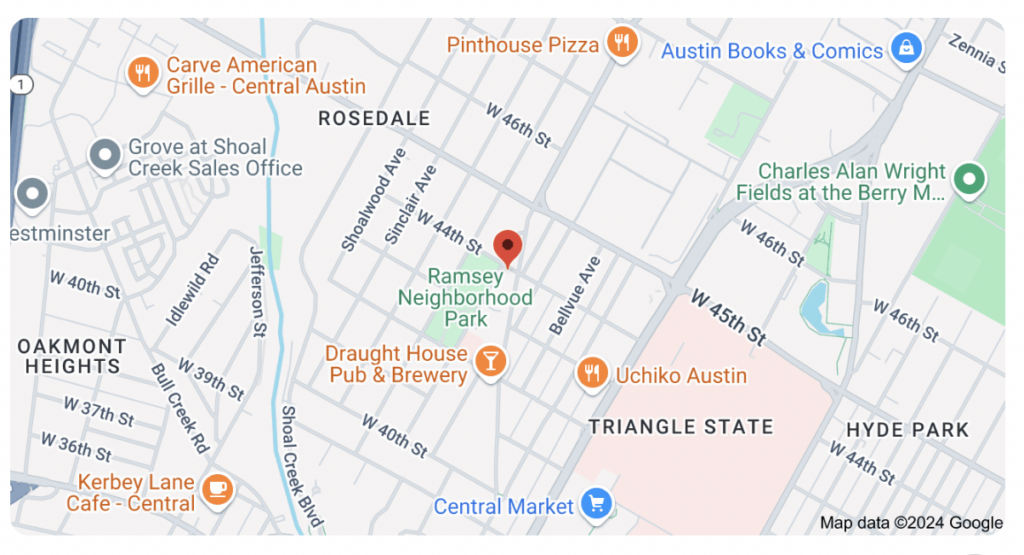Child & Spousal Support
in Austin, TX
Our Austin family law attorneys offer a range of services to help you, including children and spousal support. They will give you all the resources necessary to determine your eligibility, set up an action plan, and enforce any orders that are issued. Our team of Austin family law attorneys is ready to assist you with your case- no matter the size or complexity! We offer a free consultation so we can understand your case and you can decide if we are right for you. Once we decide which local attorney will be best suited for your specific needs, they’ll provide all necessary resources in order for us to work together towards resolving it as quickly as possible.
One of the most difficult aspects of divorce is determining which property belongs to whom. You may be very clear on who should get custody of your kids or what to do with any debts, but you may not have a plan for child and spousal support. If you’re going through a divorce in Austin, it’s important that you gain an understanding with this topic early on in the process so that you can come up with a plan tailored to your needs and those of your family.
If you need assistance with child or spousal support, our Austin family law attorneys are here to help. We can provide the experience and knowledge needed for your case. Call us today if you want an opinion on the process involved with your case or you require more information! Our knowledgeable staff will be happy to answer any questions that pop up during your free consultation with one of our experienced Austin lawyers.
Who is Eligible for Child & Spousal Support
in Austin?
Our Austin family law attorneys are knowledgeable about all types of child and spousal support cases. We’ll discuss your options so you can understand what should happen in court regarding the custodial parent’s needs, as well as the children involved in this case. The court will also assess how much it is appropriate for non-custodial parents to pay when any arrears exist, providing accountability on behalf of that person so these can’t slip into default again. You have nothing to worry about if our firm handles this aspect of your case—we’ll take care of everything so it gets done right!
In Austin, the person who is entitled to child or spousal support is called the “obligee,” and the person that pays it is called the “obligor.” For example, if you are asking for child support from your ex, then you are the obligee and they are the obligor. If you owe spousal support, then you would be the obligor and they would be the obligor.
Who qualifies for child or spousal support varies by state. In Travis County, a parent may ask for child or spousal support when:
- The parent has a legal right to custody of a minor child
- The parent does not have enough property to provide for their own basic needs and those of their children
- The parent does not receive public assistance
If a divorce decree contains provisions about child or spousal support, these provisions will be legally enforceable. If there are no provisions in the decree about either type of order, parents can still file with the court to seek orders.
Schedule Your Free Consultation!
View Our Texas
Calculators
Child & Spousal Support
in Austin, TX
Our Austin family law attorneys offer a range of services to help you, including children and spousal support. They will give you all the resources necessary to determine your eligibility, set up an action plan, and enforce any orders that are issued. Our team of Austin family law attorneys is ready to assist you with your case- no matter the size or complexity! We offer a free consultation so we can understand your case and you can decide if we are right for you. Once we decide which local attorney will be best suited for your specific needs, they’ll provide all necessary resources in order for us to work together towards resolving it as quickly as possible.
One of the most difficult aspects of divorce is determining which property belongs to whom. You may be very clear on who should get custody of your kids or what to do with any debts, but you may not have a plan for child and spousal support. If you’re going through a divorce in Austin, it’s important that you gain an understanding with this topic early on in the process so that you can come up with a plan tailored to your needs and those of your family.
If you need assistance with child or spousal support, our Austin family law attorneys are here to help. We can provide the experience and knowledge needed for your case. Call us today if you want an opinion on the process involved with your case or you require more information! Our knowledgeable staff will be happy to answer any questions that pop up during your free consultation with one of our experienced Austin lawyers.
Who is Eligible for Child & Spousal Support
in Austin?
Our Austin family law attorneys are knowledgeable about all types of child and spousal support cases. We’ll discuss your options so you can understand what should happen in court regarding the custodial parent’s needs, as well as the children involved in this case. The court will also assess how much it is appropriate for non-custodial parents to pay when any arrears exist, providing accountability on behalf of that person so these can’t slip into default again. You have nothing to worry about if our firm handles this aspect of your case—we’ll take care of everything so it gets done right!
In Austin, the person who is entitled to child or spousal support is called the “obligee,” and the person that pays it is called the “obligor.” For example, if you are asking for child support from your ex, then you are the obligee and they are the obligor. If you owe spousal support, then you would be the obligor and they would be the obligor.
Who qualifies for child or spousal support varies by state. In Travis County, a parent may ask for child or spousal support when:
- The parent has a legal right to custody of a minor child
- The parent does not have enough property to provide for their own basic needs and those of their children
- The parent does not receive public assistance
If a divorce decree contains provisions about child or spousal support, these provisions will be legally enforceable. If there are no provisions in the decree about either type of order, parents can still file with the court to seek orders.
Schedule Your Free Consultation!
View Our Texas
Calculators

Our Attorneys Are Ready To Listen
Our experienced child & spousal support attorneys in Austin have the knowledge, resources, and dedication to prepare your case and protect your interests to find the best possible outcome.
What is Child Support in Austin?
In Austin, child support is understood as the money paid by one ex-spouse to another to provide for their children. It’s important to remember that this money isn’t just for groceries and clothes, but also includes costs of school supplies, daycare, etc. Child support needs should ideally be met so that there are no differences between siblings in terms of what they have access to – all while covering essential expenses like food and clothing.
What Factors into Determining
Child Support in Austin?
To calculate the amount of child support, you will need to take into account a number of factors. One factor is the gross income of each spouse. The other factors include the children’s expenses (such as medical costs), children’s time spent with each parent, and whether or not a spouse has another job-related expense (such as health care).
1) Gross Income:
Before you can figure out the correct amount of child and spousal support payments, you will first need to determine what type of payment order you have in your divorce decree. With one type of payment order, both parents are required to pay the same percentage of their gross income. With another type, each parent pays based on their individual income level.
2) Children’s Expenses:
Children’s expenses may also factor into how much child support is required. For example, if one parent pays for private school for your children, that spouse may receive more spousal support than if they didn’t pay for private school. There are many other circumstances where a spouse’s obligation to pay for expenses would change how much child support they are required to pay.
3) Children’s Time Spent with Each Parent:
Another factor in calculating child and spousal support is the time that each parent spends with their children as well as an estimate of how much it would cost to maintain two households instead of one.
Try Our Texas
Child Support Calculator
Our experienced Austin family law attorneys understand that no case is the same. We encourage you to reach out and share the details of your case with them so they can provide you with a better idea of your unique attorney fees.

Have Questions, Reach Out!
Our experienced child and spousal support attorneys in Austin understand how overwhelming the support process can be. They will listen to the specifics of your case while paying attention to your concerns and goals. They will provide you with expert advice to help you navigate this difficult time and make the best decisions for your family!
What is Spousal Support
in Austin?
If you’re going through a divorce in Austin, it is possible that you have heard of spousal support. Spousal support is typically used when one spouse makes more money than the other. It’s used to help maintain their lifestyle while they’re transitioning to single life. Sometimes this type of compensation can be ordered even if the couple has minor children together!
How Can You Enforce
Support Payments?
If your ex-spouse or child’s other parent doesn’t abide by the terms of a court order, it may be difficult to enforce. You can go back to court for enforcement and ask for help, but this is not guaranteed. There are many actions that can be taken if someone fails to pay their spousal or child support payments.
You should contact local law enforcement and notify them you have a child or spousal support order that isn’t being paid; if they fall behind on payments more than three times, fines up to $1,000 could result from this as well as six months in jail time with no parole date set yet. The law also allows for the possibility to take away their driver’s license along with the seizure of property owned by the person owing more than $5,000 in past due to payment fees – what will happen next depends on how these proceedings play out in front of a judge once all evidence has been proven necessary beforehand!
What is Child Support
in Austin?
In Austin, child support is understood as the money paid by one ex-spouse to another to provide for their children. It’s important to remember that this money isn’t just for groceries and clothes, but also includes costs of school supplies, daycare, etc. Child support needs should ideally be met so that there are no differences between siblings in terms of what they have access to – all while covering essential expenses like food and clothing.
What Factors into Determining
Child Support in Austin?
To calculate the amount of child support, you will need to take into account a number of factors. One factor is the gross income of each spouse. The other factors include the children’s expenses (such as medical costs), children’s time spent with each parent, and whether or not a spouse has another job-related expense (such as health care).
1) Gross Income:
Before you can figure out the correct amount of child and spousal support payments, you will first need to determine what type of payment order you have in your divorce decree. With one type of payment order, both parents are required to pay the same percentage of their gross income. With another type, each parent pays based on their individual income level.
2) Children’s Expenses:
Children’s expenses may also factor into how much child support is required. For example, if one parent pays for private school for your children, that spouse may receive more spousal support than if they didn’t pay for private school. There are many other circumstances where a spouse’s obligation to pay for expenses would change how much child support they are required to pay.
3) Children’s Time Spent with Each Parent:
Another factor in calculating child and spousal support is the time that each parent spends with their children as well as an estimate of how much it would cost to maintain two households instead of one.
Try Our Texas
Child Support Calculator
Our experienced Austin family law attorneys understand that no case is the same. We encourage you to reach out and share the details of your case with them so they can provide you with a better idea of your unique attorney fees.
What is Spousal Support
in Austin?
If you’re going through a divorce in Austin, it is possible that you have heard of spousal support. Spousal support is typically used when one spouse makes more money than the other. It’s used to help maintain their lifestyle while they’re transitioning to single life. Sometimes this type of compensation can be ordered even if the couple has minor children together!
How Can You Enforce
Support Payments?
If your ex-spouse or child’s other parent doesn’t abide by the terms of a court order, it may be difficult to enforce. You can go back to court for enforcement and ask for help, but this is not guaranteed. There are many actions that can be taken if someone fails to pay their spousal or child support payments.
You should contact local law enforcement and notify them you have a child or spousal support order that isn’t being paid; if they fall behind on payments more than three times, fines up to $1,000 could result from this as well as six months in jail time with no parole date set yet. The law also allows for the possibility to take away their driver’s license along with the seizure of property owned by the person owing more than $5,000 in past due to payment fees – what will happen next depends on how these proceedings play out in front of a judge once all evidence has been proven necessary beforehand!
Try Our Austin
Spousal Support Calculator

Have Questions, Reach Out!
Our experienced child and spousal support attorneys in Austin understand how overwhelming the support process can be. They will listen to the specifics of your case while paying attention to your concerns and goals. They will provide you with expert advice to help you navigate this difficult time and make the best decisions for your family!
See What Our Clients Are Saying About
Our Child & Spousal Support Lawyers In Austin
Experienced Austin
Child & Spousal Support Attorneys
There are many factors to consider when facing the child and spousal support processes in Austin. There’s a lot you may be wondering about, but don’t worry! Our experienced Austin family law attorneys are here to help. If you have any questions about how these processes work, it would be best for you to start with an experienced lawyer first of all. They can help explain what’s expected from your unique situation in detail.
The truth is, not every situation is the same and there are no one-size-fits-all solutions that’ll work for everyone. That’s why it’s important for our lawyersto to understand your unique case before getting legal advice from our lawyers on anything related to child or spousal support.
We represent clients in court and negotiate with the other side to achieve a favorable resolution. We have been practicing family law for decades, so you can trust us when it comes to your needs. With our experience as both litigators and negotiators, we know how best to approach each individual case from beginning to end.
Our Austin child and spousal support attorneys understand how difficult family law matters are to navigate. They can empathize with your situation, provide you with counseling expert advice, to guide you to the best possible outcome for you and your family. We also understand the financial burden that family law matters can pose. As such, we have created our one-of-a-kind SimpleStart™ program to give clients an opportunity to reduce the amount of money needed to start their cases.
Our Austin Office Location

4314 Medical Parkway, Ste 100,
Austin, TX 78756
Additional Support Practice Areas
Issues surrounding support involve many aspects and every case is different. Explore some of the other areas involved in child & spousal support. While you don’t need to understand every nuance of support, the more you do understand the easier the process will be.
Experienced Austin
Child & Spousal Support Attorneys
There are many factors to consider when facing the child and spousal support processes in Austin. There’s a lot you may be wondering about, but don’t worry! Our experienced Austin family law attorneys are here to help. If you have any questions about how these processes work, it would be best for you to start with an experienced lawyer first of all. They can help explain what’s expected from your unique situation in detail.
The truth is, not every situation is the same and there are no one-size-fits-all solutions that’ll work for everyone. That’s why it’s important for our lawyersto to understand your unique case before getting legal advice from our lawyers on anything related to child or spousal support.
We represent clients in court and negotiate with the other side to achieve a favorable resolution. We have been practicing family law for decades, so you can trust us when it comes to your needs. With our experience as both litigators and negotiators, we know how best to approach each individual case from beginning to end.
Our Austin child and spousal support attorneys understand how difficult family law matters are to navigate. They can empathize with your situation, provide you with counseling expert advice, to guide you to the best possible outcome for you and your family. We also understand the financial burden that family law matters can pose. As such, we have created our one-of-a-kind SimpleStart™ program to give clients an opportunity to reduce the amount of money needed to start their cases.
Our Austin
Office Location

4314 Medical Parkway, Ste 100,
Austin, TX 78756
Additional Support
Practice Areas
Issues surrounding support involve many aspects and every case is different. Explore some of the other areas involved in child & spousal support. While you don’t need to understand every nuance of support, the more you do understand the easier the process will be.
Meet Our Team Of Experienced
Austin Child & Spousal Support Attorneys
Frequently Asked Questions About
Child & Spousal Support in Austin
How do I get spousal maintenance in Austin?
A court may order maintenance for either spouse only if the spouse seeking maintenance will lack sufficient property, including the spouse’s separate property, on divorce to provide for the spouse’s minimum reasonable needs and:
(1) the spouse from whom maintenance is requested was convicted of or received deferred adjudication for a criminal offense that also constitutes an act of family violence, as defined by Section 71.004, committed during the marriage against the other spouse or the other spouse’s child and the offense occurred:
(A) within two years before the date on which a suit for dissolution of the marriage is filed; or
(B) while the suit is pending; or
(2) the spouse seeking maintenance:
(A) is unable to earn sufficient income to provide for the spouse’s minimum reasonable needs because of an incapacitating physical or mental disability;
(B) has been married to the other spouse for 10 years or longer and lacks the ability to earn sufficient income to provide for the spouse’s minimum reasonable needs; or
(C) is the custodian of a child of the marriage of any age who requires substantial care and personal supervision because of a physical or mental disability that prevents the spouse from earning sufficient income to provide for the spouse’s minimum reasonable needs.
TFC 8.051
Learn more about alimony, spousal maintenance, and spousal support in Texas.
How is child support calculated in Austin?
The person who pays child support in Texas is the obligor, the person receiving child support is the obligee. In 1989, Texas Legislators introduced statutory “guideline child support”. This set the percentage of net resources an obligor has to pay based upon the total number of children that the obligor has an obligation to legally support, and the number of children involved in the current case. That percentage is then applied to the individual’s net resources. The same guidelines for child support are still in effect today.
Learn more about how child support is calculated in Austin or try our Texas child support calculator.
If my spouse is being violent can I apply for a protective order in Austin?
Protective orders have very specific prerequisites under the Texas Family Code. Additionally, during the most recent legislative session in Texas, there were important changes that you should understand.
Protective orders under the family code are granted based on family violence which is defined as:
1. An act by a member of a family or household against another member of the family or household that is intended to result in physical harm, bodily injury, assault, or sexual assault, or that is a threat that reasonably places the family or household member in fear of imminent physical harm, bodily injury, assault, or sexual assault.
2. Abuse by a member of the family or household against a child of the family or household; or
3. Dating violence against a member of a dating relationship or a third party.
For the purposes of the definition in the Texas Family Code:
Family includes individuals related by consanguinity or affinity, former spouses, parents of the same child, a foster child and foster parent.
Household means persons living together in the same dwelling even if not related and includes a person who previously lived in a household.
Dating relationship means a relationship between individuals who have or have had a continuing relationship of a romantic or intimate nature based on the length of the relationship; the nature of the relationship; and the frequency and type of interaction between the persons involved in the relationship.
Learn more about protective orders in Texas.
Frequently Asked Questions About
Child & Spousal Support in Austin
How do I get spousal maintenance in Austin?
A court may order maintenance for either spouse only if the spouse seeking maintenance will lack sufficient property, including the spouse’s separate property, on divorce to provide for the spouse’s minimum reasonable needs and:
(1) the spouse from whom maintenance is requested was convicted of or received deferred adjudication for a criminal offense that also constitutes an act of family violence, as defined by Section 71.004, committed during the marriage against the other spouse or the other spouse’s child and the offense occurred:
(A) within two years before the date on which a suit for dissolution of the marriage is filed; or
(B) while the suit is pending; or
(2) the spouse seeking maintenance:
(A) is unable to earn sufficient income to provide for the spouse’s minimum reasonable needs because of an incapacitating physical or mental disability;
(B) has been married to the other spouse for 10 years or longer and lacks the ability to earn sufficient income to provide for the spouse’s minimum reasonable needs; or
(C) is the custodian of a child of the marriage of any age who requires substantial care and personal supervision because of a physical or mental disability that prevents the spouse from earning sufficient income to provide for the spouse’s minimum reasonable needs.
TFC 8.051
Learn more about alimony, spousal maintenance, and spousal support in Texas.
How is child support calculated in Austin?
The person who pays child support in Texas is the obligor, the person receiving child support is the obligee. In 1989, Texas Legislators introduced statutory “guideline child support”. This set the percentage of net resources an obligor has to pay based upon the total number of children that the obligor has an obligation to legally support, and the number of children involved in the current case. That percentage is then applied to the individual’s net resources. The same guidelines for child support are still in effect today.
Learn more about how child support is calculated in Austin or try our Texas child support calculator.
If my spouse is being violent can I apply for a protective order in Austin?
Protective orders have very specific prerequisites under the Texas Family Code. Additionally, during the most recent legislative session in Texas, there were important changes that you should understand.
Protective orders under the family code are granted based on family violence which is defined as:
1. An act by a member of a family or household against another member of the family or household that is intended to result in physical harm, bodily injury, assault, or sexual assault, or that is a threat that reasonably places the family or household member in fear of imminent physical harm, bodily injury, assault, or sexual assault.
2. Abuse by a member of the family or household against a child of the family or household; or
3. Dating violence against a member of a dating relationship or a third party.
For the purposes of the definition in the Texas Family Code:
Family includes individuals related by consanguinity or affinity, former spouses, parents of the same child, a foster child and foster parent.
Household means persons living together in the same dwelling even if not related and includes a person who previously lived in a household.
Dating relationship means a relationship between individuals who have or have had a continuing relationship of a romantic or intimate nature based on the length of the relationship; the nature of the relationship; and the frequency and type of interaction between the persons involved in the relationship.
Learn more about protective orders in Texas.
Our Calculators
We’re not fans of surprises and we suspect you aren’t either. We built these calculators just for you, so you know what to expect every step of the way.
Additional Resources About
Child & Spousal Support in Austin

How Is Child Support Calculated in Texas?
Understanding how your child support payments in Texas are calculated is crucial to making important decisions about your family’s future. This article explains how these payments are decided.

Top 10 Things To Know About Texas Alimony Payments
There are many factors that go into deciding the amount of your Texas alimony payments. Here are 10 things you should know about alimony, spousal support, and spousal maintenance.

10 Things to Know About Failing to Pay Child
Texas does not tolerate parents that are delinquent with their child support payments. Here are 10 things you should know about failing to pay.
Schedule A FREE
Consultation

















